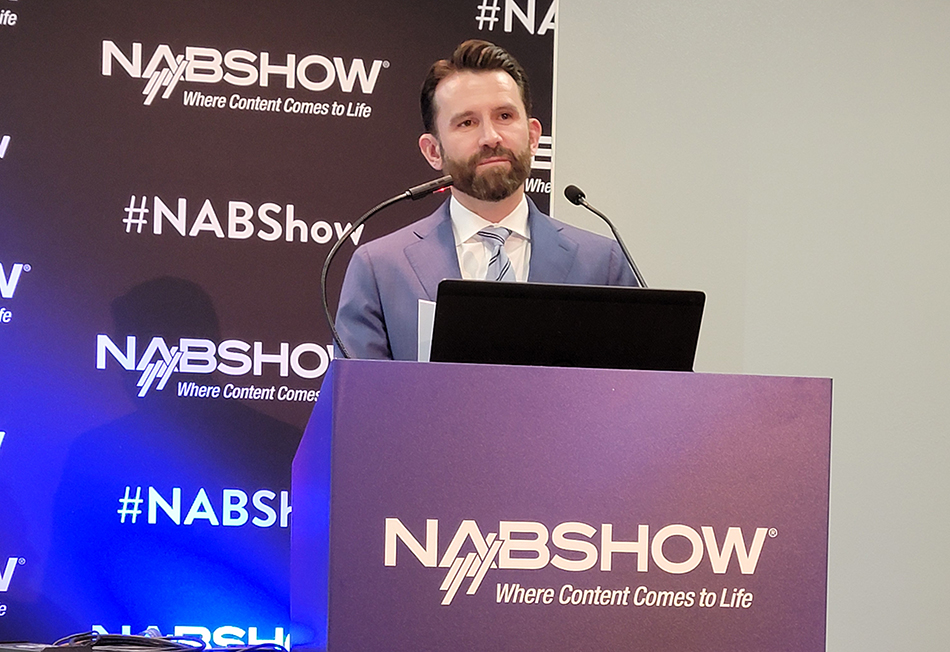After FuboTV Flap, Sinclair Wants Networks Out of vMVPD Negotiations
CEO Chris Ripley expects resolution in the next couple of months

The smarter way to stay on top of broadcasting and cable industry. Sign up below
You are now subscribed
Your newsletter sign-up was successful
Sinclair Broadcast Group CEO Chris Ripley said he expects the company’s CBS affiliates to be back on FuboTV in the next couple of months and said broadcasters want to take control of future negotiations with virtual multichannel video programming distributors.
Also Read: Scripps CEO Joins Call For Stations to Negotiate Retans Fees With vMVPDs
Paramount Global last month replaced CBS affiliate programming on FuboTV with a national feed after the CBS Affiliate Board said the retransmission consent offer negotiated with Fubo by CBS didn't reflect the value of the affiliates’ programming.
CBS affiliate station owners rejected the deal.
Unlike retransmission deals with cable operators, satellite distributors and telcos, streaming vMVPDs negotiate carriage deals with the network instead of individual station owners.
On Sinclair’s fourth-quarter earnings call with analysts Wednesday, Ripley said he expected the Fubo situation to be resolved between the affiliates and the network in the next couple of months.
Ripley told the analysts that while the Fubo situation isn’t having a big financial impact, the issue is important in principle.
The smarter way to stay on top of broadcasting and cable industry. Sign up below
Also: CBS-FuboTV Flap Adds to Strains With Affiliates, Analyst Says
“There is a growing consensus within the broadcast community and also within D.C., that this situation with the virtuals needs to change,” Ripley said. “It really is not consistent with the way the industry is set up and the way market power should be used.”
Ripley said that the stations should be able to do the negotiating with vMVPDs.
“We welcome the opportunity to come up with a more equitable solution and continue to believe that we should have the ability to negotiate these agreements ourselves, as we do the hundreds of legacy cable, telco and satellite companies, with no interference from the networks,” Ripley said.
Ripley noted that the situation also caught Fubo in the crossfire because it can’t negotiate directly with the affiliates under its deal with Paramount.
One analyst suggested that Paramount and CBS have carriage negotiations coming up with YouTube TV in the next few months and asked if they could result in a similar outcome to what happened at Fubo.
“I think the bigger issue that we're highlighting is just one of inequity in terms of how virtuals are dealt with versus traditional,” Ripley said. “There’s a growing consensus within the industry and within D.C. that needs to change.”
Analysts were curious about a more significant drop in Sinclair’s retransmission revenue in the fourth quarter and a forecast that retrans would be down in 2023.
The company chalked up the situation to the rate of subscriber churn at distributors and the timing of its own retransmission agreements.
Ripley said that about deals representing about 50% of Sinclair’s distribution would be renegotiated before the end of the year. Another 40% are up for renewal in early 2024. That means that Sinclair hasn’t had a chance to reset rates for most of its footprint for at least two years.
Once new rates are negotiated, Sinclair expects retrans revenue to increase by low single digits cumulatively over 2023, 2024 and 2025.
Ripley added that it was important for the analysts to understand that the growth of reverse retrans — a programming fee paid by stations to the networks as a share of retrains payments from distributors — has significantly moderated over the last year or so.
Between retrains, an uncertain ad market, a lack of election-year spending and upcoming investments, Sinclair expects EBITDA to be lower in 2023 than in 2022. Free cash flow will be lower, too.
“This will be a big year of investment on a number of fronts,” Ripley said. Sinclair said it will be investing in news, NextGen TV activities, ad tech, content, customer data management and moving its operations to the cloud.
The company will be spending $75 million in those areas, a peak year for what what Ripley called an investment in “transformation.”
Ripley said he expected those investments to pay off in savings in operating expenses and capital expenses.
“We wouldn’t be spending this if it didn’t have commensurate cost savings in the future or a capability that we needed to enhance revenue growth opportunities,” he said. After making the investment in 2023, Sinclair should start to see savings in 2024 and a big impact in 2025 and beyond. ■
Jon has been business editor of Broadcasting+Cable since 2010. He focuses on revenue-generating activities, including advertising and distribution, as well as executive intrigue and merger and acquisition activity. Just about any story is fair game, if a dollar sign can make its way into the article. Before B+C, Jon covered the industry for TVWeek, Cable World, Electronic Media, Advertising Age and The New York Post. A native New Yorker, Jon is hiding in plain sight in the suburbs of Chicago.

